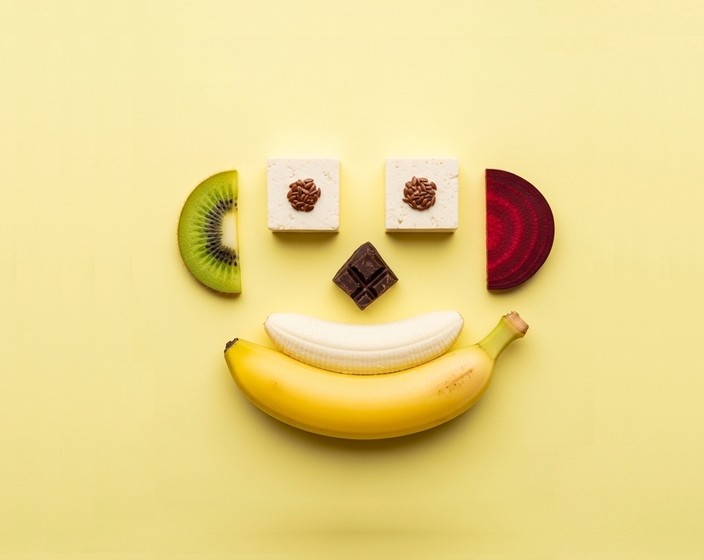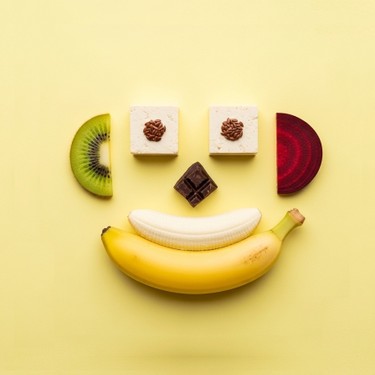What to Eat to Support Serotonin, Estrogen, and Other Happy Hormones




Feeling moody, foggy, bloated—or just not like yourself? It might not just be stress or lack of sleep. More often than not, your hormones are calling the shots behind the scenes.
Hormones are like tiny messengers running through your bloodstream, telling your body what to do—when to eat, sleep, smile, cry, relax, or react. And guess what? Your diet plays a huge role in whether those messengers are helping or hurting your mood, energy, and focus.
Whether you're navigating PMS, burnout, poor sleep, or just want to feel more balanced day to day, eating to support your hormones can make a real difference. In this Mood Food guide, we’ll break down the happy hormones that matter most—serotonin, estrogen, dopamine, melatonin, and cortisol—plus the best hormone-balancing foods (and SideChef recipes!) to help you feel more calm, clear, and like yourself again.
Food isn’t just fuel—it’s your hormones’ secret weapon.
They influence your:
But when your diet leans too heavily on ultra-processed foods, sugar, or alcohol, you’re more likely to experience:
Serotonin affects everything from happiness to digestion to restful sleep.
You can’t eat serotonin directly, but you can eat tryptophan-rich foods that help your brain produce it.
🟢 Eat more: Eggs, salmon, tofu, bananas, oats, dark leafy greens
❌ Avoid: Too much caffeine, ultra-processed sugar bombs (which can spike then crash your levels)
Try These:
Especially important for menstrual health, menopause, and even mood regulation. Low estrogen can lead to fatigue, anxiety, and poor sleep.
Want to support your cycle with food?
👉 Check out Eating for Your Cycle: Best & Worst Foods for That Time of the Month for the full breakdown.
We’ve also got meal plans tailored for every part of your day to help support estrogen and balance your hormones naturally:
🍳 Breakfast – Start the day with fiber and healthy fats
🥗 Lunch – Plant-forward and protein-packed
🍽 Dinner – Balanced meals to stabilize energy
🟢 Eat more: Flaxseed, tofu, chickpeas, sesame, broccoli, kale
❌ Avoid: Alcohol (interferes with estrogen metabolism), excess red meat
Try These:
Dopamine keeps you sharp, driven, and emotionally stable. It's produced from tyrosine, an amino acid found in protein-rich foods.
Many of the same foods that support your happy hormones also play a proven role in brain health. For instance, omega‑3–rich salmon, antioxidant‑packed berries, and nutrient‑dense leafy greens not only balance serotonin and cortisol—they also boost focus, memory, and mood, as shown in brain health guides like “14 Ultimate Brain‑Boosting Foods for Focus, Memory, and Mood”.
🟢 Eat more: Eggs, almonds, chicken, avocados, beets, fermented foods
❌ Avoid: Overeating sugar and fried foods (they deplete dopamine stores over time)
Try These:
Melatonin helps regulate your sleep-wake cycle. It naturally rises in the evening—but nutrient deficiencies (or too much blue light) can block it.
🟢 Eat more: Tart cherries, almonds, kiwi, bananas, oats
❌ Avoid: Scrolling TikTok in bed, heavy late-night snacks, alcohol
Try These:
Cortisol helps your body respond to stress—but chronically high levels from poor sleep, sugar overload, or skipping meals can leave you feeling wired, anxious, and bloated.
🟢 Eat more: Omega-3s, berries, dark chocolate, whole grains, green veggies
❌ Avoid: Skipping meals, refined carbs, too much coffee
Try These:
❓Can your diet help regulate serotonin and estrogen?
✔️ Yes! Tryptophan-rich foods like eggs and tofu support serotonin. Phytoestrogens in flaxseed, soy, and chickpeas can support estrogen balance.
❓What foods disrupt hormone health?
✔️ Processed foods, added sugar, alcohol, and trans fats can disrupt hormone signals, increase inflammation, and worsen PMS, fatigue, or insomnia.
❓How can I start eating for hormonal balance?
✔️ Add one hormone-supportive meal a day, stay hydrated, prioritize sleep, and include foods like salmon, oats, leafy greens, and berries.
📌 Save your favorite recipes.
🧠 Listen to your body.
🍳 Eat with joy—and science on your side.